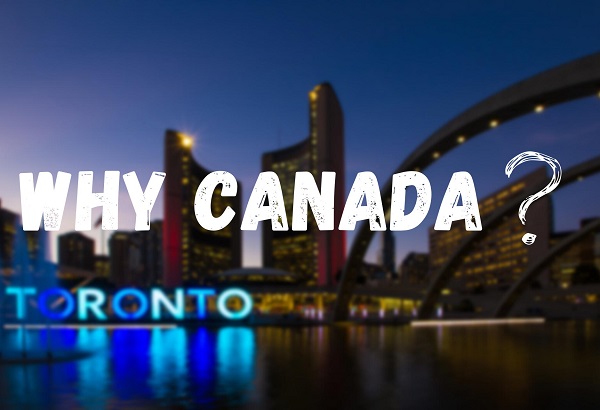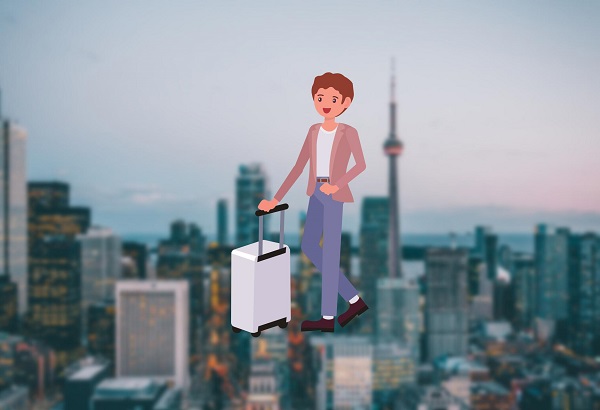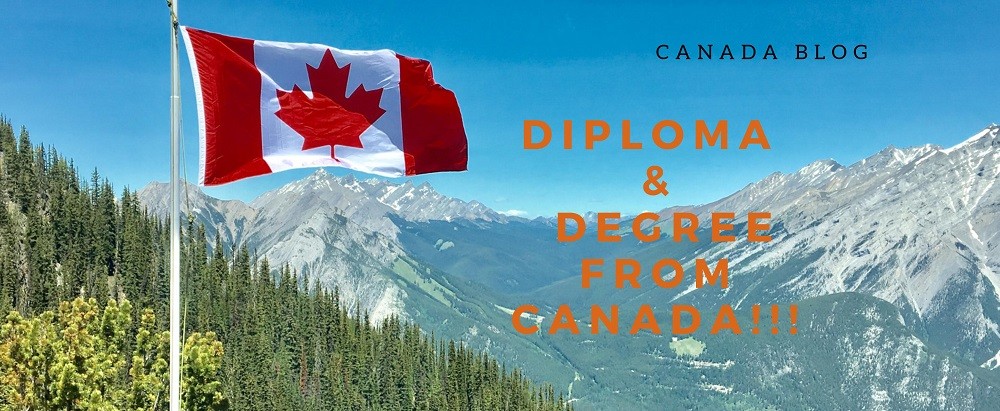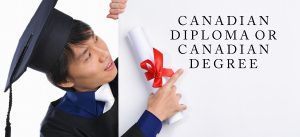Why Study in Canada ?

Why Study in Canada ?
- Affordable cost of studying The cost of studying and living in Canada is quite low when compared to other prominent countries such as the United Kingdom and the United States.
- High Living Standards: Canada has a high standard of living and a great quality of life. One of the reasons why many students opt to study in Canada is because of this.
- The city is home to some of the world’s best universities. The University of Toronto, McGill University, University of Waterloo, University of Alberta, and other top universities in the globe are all located in Canada.
- No Language Barrier Because English and French are Canada’s official languages, surviving there is a lot easier. English is almost universally understood, making it perfect for overseas students. In addition, Canada features a number of internationally recognized universities that are highly regarded around the world.
- World-Recognized Education System: Canada’s university system is one of the causes for the country’s excellent academic achievements and inventions. It encourages students to speak up and express themselves without fear of being judged. The lectures are also made engaging in order to keep the students’ attention. Following their examinations, students receive detailed comments. These elements contribute to the fact that studying in Canada, with its program-focused colleges and diverse job opportunities, is a success.
- High Graduate Employability Rate: Canada’s universities are well-known around the world for their high graduate employability rates and excellent academic achievement. In order to foster a cosmopolitan environment, the Canadian Ministry of Education promotes overseas students to enroll in Canadian universities. This makes it simple for international students to adjust and interact with their peers at college. Canada is also a safe country with a great standard of living for its residents. Canada’s colleges and universities have also been praised for their in-depth research in a variety of subjects, earning them international acclaim.
- A completed application form for the university of your choice.
- Official transcripts and documentation certifying the awarding of a previous degree.
- Where applicable, official documentation confirming professional designations.
- Two (2) letters of academic recommendation attesting to graduate school preparation; Letters from employers attesting to a level of experience and analytical writing abilities will be acceptable for people without recent academic experience.
- A chronological CV that clearly outlines educational accomplishments, employment experience, and advancement, and other relevant experience.
- letter of intent (LOI) that states why the applicant is applying as well as the student’s academic goals.
- If the candidate provides a credential from an unrecognized institution or if the Admissions Committee requires extra investigation, a credential evaluation from a recognized service certifying equivalency.
- Language proficiency in English must be demonstrated.
1. Tuition fees
This is determined by the type of qualification and the institution chosen. A year’s worth of the money will be between CAD 7,000 to CAD 35,000. For Indian students, the approximate cost of studying in Canada ranges from INR 3,50,000 to INR 19,00,000 per year. The amount varies according to the sort of course you choose.
2. Accommodation:
For overseas students, colleges provide on-campus housing. Students who choose to live off-campus can do so in shared apartments with other students on the campus. On-campus housing can cost anywhere between CAD 8,000 and CAD 10,000 per year, but a shared apartment might cost anywhere between CAD 400 and CAD 700 per month, depending on your location and time of year. It might possibly cost up to CAD 1000 to CAD 2000 per month in the most desirable neighborhoods and cities.
3. Living Expenses:
A single student budget in Canada ranges from CAD 6,000 to CAD 10,000, depending on numerous expenses and living costs such as communication, transportation, books and supplies, daily necessities, and so on (indicative).
4. Uncommon occurrences:
The visa and study permit will set you back about CAD 150. Health and insurance costs range from CAD 300 to CAD 800 per year (indicative).The basic cost ranges listed above are intended to give you an idea of the costs involved so that you may make appropriate plans.
| Types of Expenses Yearly Cost |
| Tuition Fees CAD 7,000 to CAD 35,000 (INR 3,50,000 to 19,00,000) |
| Accommodation CAD 7,200 to CAD 24,000 (INR 3,91,054 to INR 13,03,515) |
| Other Living Expenses (Grocery, CAD 6,000 to CAD 10,000 (INR transportation, etc.) 3,23,881 to INR 5,39,802) |
| Miscellaneous CAD 1,000 (INR 53,980) Total (with tuition fees) CAD 21,200 to CAD 66,500 (INR 11,44,382 to INR 37,78,620) Total (without tuition fees) CAD 14,200 to CAD 35,000 (INR 7,66,520 to INR 18,89,310) |
- A good academic score is required for most awards, though this varies depending on the city, subject, and level.
- The amount of money given to each college varies. Because applying for scholarships takes time, you should begin the process at least 8 to 12 months before the course begins.
- Vanier Canada Graduate Scholarships
- Ontario Trillium Scholarship
- Ontario Graduate Scholarship
- Go Clean Scholarship
- Humber College International Entrance Scholarship
- Waterloo Merit Scholarship
- UBC International Leader of Tomorrow Award
- Science and Law School Scholarship
- Quebec Provincial Government Scholarship
- University of Manitoba Graduate Fellowships
And many more.. Top Universities in Canada:
| University | Location Canada Rank Global Rank |
| University of Toronto | Toronto, Ontario 1 29 |
| McGill University | Montreal, Quebec 2 35 |
| University of British Columbia | Vancouver and Kelowna, British 3 51Columbia |
| University of Alberta | Edmonton, Alberta 4 113 |
| Université de Montréal | Montreal, Quebec 5 137 |
| McMaster University | Hamilton, Ontario 6 140 |
| University of Waterloo | Waterloo, Ontario 7 173 |
| Western University | London, Ontario 8 211 |
| University of Calgary | Calgary, Alberta 9 233 |
| Queen’s University | Kingston, Ontario 10 239 |
- Business and Finance
- Nursing
- Dentistry
- Engineering
- Pharmacy
What is the procedure for obtaining a study visa in Canada?
International students can study in Canada at recognized learning institutes with a Study Permit. Before applying for permission, make sure you have all of the necessary documentation. A study permit isn’t the same as a visa. A temporary resident visa must be applied for individually. A study permit is valid for the term of your course plus an additional 90 days. This extra time allows you to leave or request an extension.Before you arrive in Canada, you should apply for a study permit. Only a few persons are eligible to apply for a study permit in Canada. Additionally, you can apply when you arrive in Canada. Applying online is one alternative for submitting an application. The permission is completed quickly with the online application, preventing any delays. If they require any additional documents, they can be added online immediately, saving time from having to courier them. You can also use your account to stay up to date on the status of your application.When applying for a study permit, you must submit the following documents:- A letter from the institution stating that you have been accepted.
- A valid passport, pictures, and any other form of documentation are required as proof of identity.
- proof of financial assistance, such as a proof of student loan or a bank statement from the last four months, or any other appropriate document.
1. Valid Passport
To apply for a Study Permit, you must have a valid passport. According to the Canadian High Commission, you must have a passport that is valid for the period of your anticipated stay in Canada, which is at least your course term.
2. Proof of Acceptance by the Institute You’ll need the acceptance letter from the university or institute. A Designated Learning Institute has been approved by the Immigration and Naturalization Service.
3. Affirmation of Funds
You’d have to produce proof of your financial situation. Its purpose is to demonstrate that you are financially capable of covering both your tuition and living expenses. A student must produce a minimum of $10,000 in Canadian funds for each year of their stay in Canada, according to Canadian Immigration.
4. Medical Exam for Immigration (IME)
International students from India are required by Canadian Immigration to complete a mandatory Immigration Medical Examination by impaneled doctors. It is recommended that they schedule an appointment with one of the specified doctors for a medical examination at least a week before they begin their Visa application. This allows the doctor sufficient time to review and upload the necessary documentation.
5. English Language Proficiency Exam Score
You need to submit your English language proficiency score for your admission to the Canadian University. TOEFL, IELTS, etc. are all acceptable.
6. Purpose Statement When applying for a Canadian Study Permit, you must submit a statement explaining the objective of your trip and why you chose this particular institute.
7. Credit Card
The Visa Application Fee for Canada is CAD 160 and has to be paid through an online payment. Only credit cards are accepted by the system.
Some Frequently Asked Questions about Studying in Canada:
1. Which Canadian city is the finest for studying?
Some of the greatest cities in Canada to study are Toronto, Montreal, Quebec, Vancouver, and Ottawa.
2. What is the most affordable university in Canada?
University of Manitoba, Dalhousie University, McGill University, University of Alberta, and Memorial University are among Canada’s most affordable universities.
3. How much does it cost to study in Canada?
In comparison to India, studying in Canada is unquestionably more costly. In comparison to other top countries such as the United States and the United Kingdom, however, studying in Canada is far more affordable.
4. Does Canada have any free universities?
No, Canada does not have any free universities. Canada, on the other hand, boasts a large number of affordable universities and gives numerous scholarships to overseas students.
5. Can I work in Canada while studying?
If your study visa includes a condition allowing you to work, you may be able to work while studying in Canada. You can work on or off-campus while studying in this situation. If your study permit does not include the statement, you can have it altered free of charge.
6. How many hours may I work while studying in Canada?
While studying in Canada, you can work up to 20 hours per week.Both national and international students can take advantage of a variety of study and career options in Canada. We hope that the information we’ve provided on applying ,studying, living, and working in Canada as a student has aided you in making your decision.
Trending Today
SPEAK TO OUR COUNSELLOR
Contact
Us










